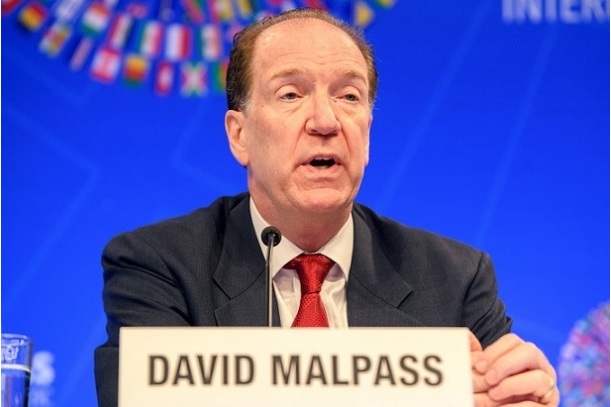Latest News
World Bank to invest $15 billion to boost human capital in Africa

News Highlight
The objective of the World Bank’s African Human Capital Plan is to enable Africa’s young people to grow up with optimal health and equipped with the requisite skills to compete in the global digital economy.
The World Bank has unveiled a new plan to help African countries strengthen their human capital. The objective of the World Bank’s African Human Capital Plan, released today, is to enable Africa’s young people to grow up with optimal health and equipped with the requisite skills to compete in the global digital economy.
Human capital is the stock of a population’s knowledge, skills, experience and health. The 2018 World Bank’s Human Capital Index (HCI), which measures how well countries invest in the next generation of workers, shows that Sub-Saharan Africa (SSA) has the lowest human capital. This is as a result of the high mortality and stunting rates in the region, as well as inadequate student learning outcomes, all of which have a direct effect on economic productivity.
According to the HCI, the top 10 countries with the least human capital score are Chad (0.29), South Sudan (0.30), Liberia (0.32), Mali (0.32), Niger (0.32), Nigeria (0.34), Côte d’Ivoire (0.35), Mauritania (0.35), Sierra Leone (0.35), and Angola (0.36).
The World Bank said it will increase its investment in human capital in Africa by 50 per cent in the next funding cycle. This includes new grants and concessional finance for human capital projects in Africa, totalling $15 billion in fiscal years 2021-2023. These investments will be used to unlock structural constraints to human capital development in the region.
By 2023, the plan aims to achieve its targets, which include a reduction in child mortality, averting stunting among 11 million children and increasing learning outcomes for girls and boys in school by 20 per cent. Achieving these targets, according to the Bretton Wood institution, can raise Africa’s HCI score, thereby increasing the productivity of future workers by 13 per cent.
Speaking at the launch of the plan during the World Bank and the International Monetary Fund’s Spring Meetings 2019, Hafez Ghanem, World Bank’s Vice President for Africa, said, “Preventing a child from fulfilling his or her potential is not only fundamentally unjust, but it also limits the growth potential of economies whose future workers are held back. GDP per worker in Sub-Saharan Africa could be 2.5 times higher if everyone were healthy and enjoyed a good education from pre-school to secondary school.”
The World Bank launched the Human Capital Project in 2018 as a global effort designed to accelerate the accumulation of human capital by encouraging more effective policies and investments. The project places special emphasis on working with SSA countries to help them meet their human capital goals. According to the statement, investing in Africa’s people is central to ensuring the continent’s prosperity and its full participation in global markets.
The World Bank said 23 African countries have joined a coalition of nearly 60 countries in the Human Capital Project, committing to a set of accelerated investments in their human capital. According to the statement, the World Bank will also target game-changing interventions that leverage technology and innovation and that prevent and reverse damage to human capital in fragile and conflict-affected settings.
“Human Capital Project countries are breaking away from traditional paradigms to make investments in their people a priority and are working in a more coordinated way across governments to ensure that households have the right enabling environment to support human capital formation,” said Annette Dixon, Vice President for Human Development at the World Bank.
Related News
Latest Blogs
- The Museum of West African Art saga
- The complexity and complication of Nigeria’s insecurity
- Between bold is wise and wise is bold
- Prospects of port community system in Nigeria’s maritime sector
- Constitutionalism must anchor discipline in Nigerian Armed Forces
Most Popular News
- NDIC pledges support towards financial system stability
- Artificial intelligence can help to reduce youth unemployment in Africa – ...
- Afreximbank backs Elumelu’s Heirs Energies with $750-million facility
- AfDB and Nedbank Group sign funding partnership for housing and trade
- GlobalData identifies major market trends for 2026
- Lagride secures $100 million facility from UBA







